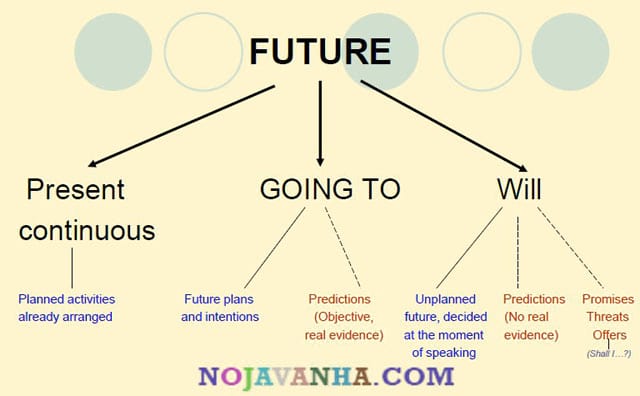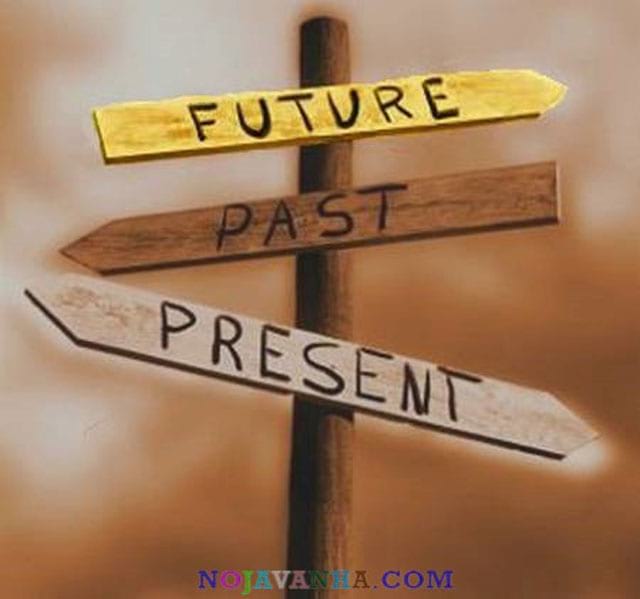اختصاصی نشریه اینترنتی نوجوان ها
اگر خاطرتان باشد در جلسه های قبلا در مورد
Will- going to
صحبت کردیم.این دو زمان پر کاربرد و مهم در زبان انگلیسی باهم تفاوت هایی دارند.
ممکن است این دو زمان حتی به جای هم به کار روند اما یک انگلیسی زبان به خوبی تفاوت آنها را درک می کند و در شرایط متفاوت از این زمان ها استفاده می کند.
بیایید بیشتر با این زمان ها آشنا شویم و پس از آن می توانیم با هم چند تمرین در مورد زمان آینده انجام دهیم.
Be going to:
این زمان با فعل مصدر به کار می رود. مصدر در زبان انگلیسی ترکیبی از تو و شکل ساده فعل است:
To+simple verb
کاربردهای این زمان:
در هنگام پیش بینی آینده، پیش بینی آب و هوا از این زمان استفاده می کنیم.
مثال:
The Roses are already a popular band and they are going to be massive!
پس برای اتفاقی که وقوع آن در آینده پیش بینی شده نمی توانیم از ویل استفاده کنیم:
X Look at those black clouds. It will rain.
Look at those black clouds. It’s going to rain.
Will:
زمان آینده ساده همان طور که قبلا هم به آن اشاره کردیم همیشه با فعل ساده به کار می رود.
کاربردهای این زمان:
هنگام حدس زدن، تحلیل، قضاوت از زمان آینده استفاده می کنیم.
مثال:
• We’ll still be here in twenty years.
تا بیست سال آینده هنوز اینجا خواهیم بود.
گاهی اوقات از زمان حال ساده برای پیش بینی هم استفاده می کنیم. فرق این پیش بینی با زمان قبلی این است که فکر می کنیم اتفاقی در آینده خواهد افتاد چون در گزشته مشابه آن رخ داده است.
مثال:
He’ll be in prison for a long time. (Similar crimes have attracted long sentences.)
برای مدتی طولانی در زندان خواهد بود.(جرمی مشابه آن قبلا اتفاق افتاده بوده است).
اکنون نوبت محک زدن خودمان است:
| مثال She _____________ a present for her mother. (to buy) Answer: She is going to buy a present for her mother. or She‘s going to buy a present for her mother. |
||||||||||
|
جواب:
1) He is going to phone his friend.2) We are going to play a new computer game.3) My sister is going to watch TV.4) You are going to have a picnic next Tuesday.5) Jane is going to go to the office.6) They are going to walk to the bus stop this afternoon.7) His brother is going to write a letter to his uncle today.8) She is going to visit her aunt.9) I am going to do my homework after school.10) Sophie and Nick are going to meet their friends.
| مثـــــــال Example: The weather ______ nice at the weekend. (to be) Answer: The weather will be nice at the weekend. | ||||||||||
|
||||||||||
|
||||||||||



